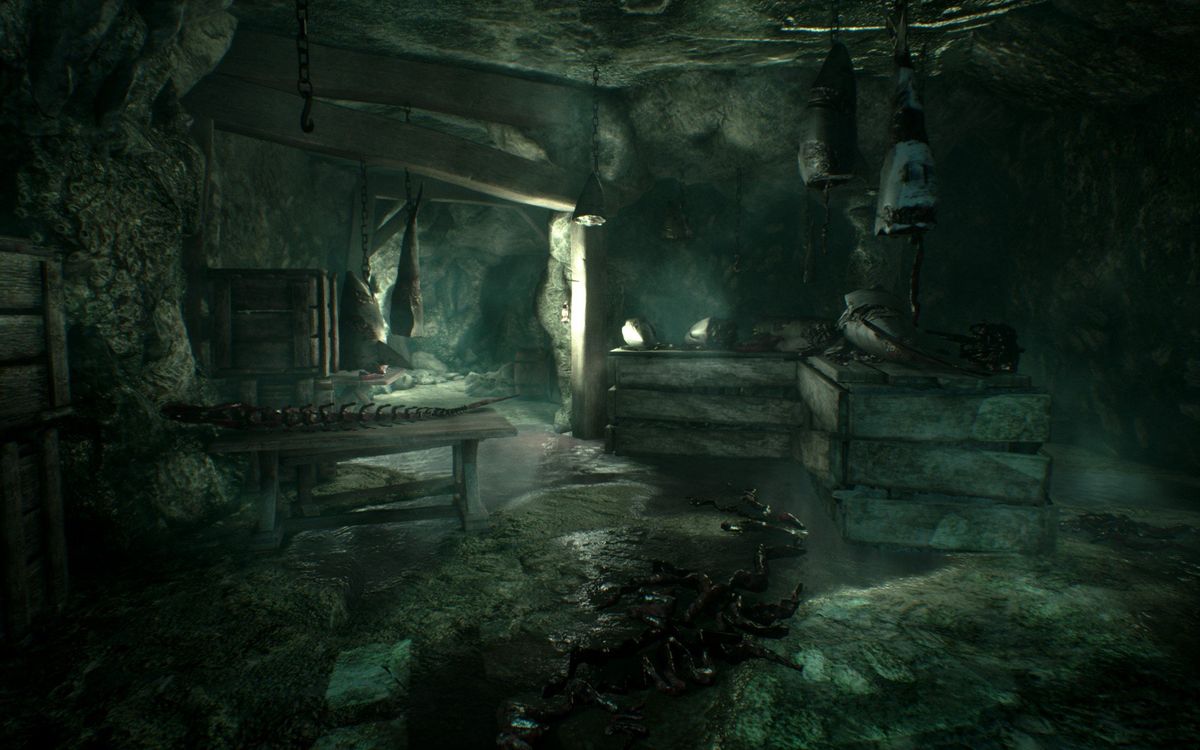Call of Cthulhu, a brand new game out for both PC, Xbox One, and PlayStation 4, brings a Lovecraftian tale of horror and mystery to your fingertips. Seamlessly blending the horror genre with that of choice based adventure, experiencing Call of Cthulhu is a thrilling ride through and through, despite some technical issues.
Here's what you can expect from this take on one of H. P. Lovecraft's most iconic pieces of mythology.
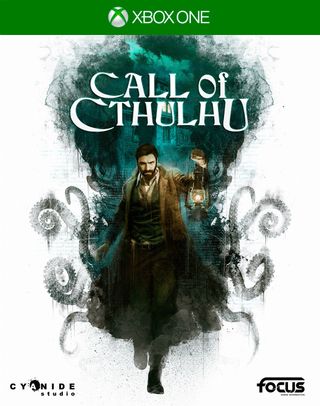
Bottom line: Call of Cthulhu's superb atmosphere, writing, and gameplay come together to create an excellent experience that is marred only by a handful of issues with polish and presentation.
For
- Fantastic story.
- Excellent gameplay.
- A bone-chilling atmosphere.
Against
- Average visuals.
- Odd performance issues.
About this review
This review was conducted on a Windows 10 PC equipped with an Intel i7-8700K processor, an NVIDIA GeForce 1050Ti graphics card, and 16GB of RAM. The review was conducted with a review copy of the game provided to Windows Central prior to launch.
Story: Uncover the secrets of Darkwater
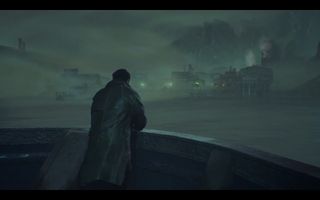
Call of Cthulhu is set in 1924, in the wake of the end of World War I. You play as veteran-turned-private-investigator Edward Pierce, and one day after sleeping off a hangover, you hear a knock at your office door. Enter a mysterious man who pleads with you to investigate a horrific house fire that caused the death of his daughter and her family on Darkwater Island, a piece of land off the coast of Boston. Your only clue is an unsettling painting created by none other than the daughter herself, depicting a menacing black figure with a brightly lit symbol on his chest.
Call of Cthulhu is the definition of suspenseful.
In order to try and make sense of it all, Edward catches a ride on a ship to the island so that he may begin looking for more clues. Upon arrival, though, it's clear that everyone at Darkwater is on edge and nervous about something. As you cautiously ask the locals about the fire and other recent events, you realize that there's a much darker side to this place then anyone could have expected. Driven by a desire to learn the truth, you dive deeper into the depths of Darkwater ... but you'll quickly discover how one wrong choice or action could doom you to insanity forever.
Overall, this narrative is suspenseful, well-written, and creative. Aside from Edward being the typical alcoholic private investigator, there was never a point in the game where things felt predictable or cliche, and I was hooked from start to finish.
Gameplay: A blend of three styles

In Call of Cthulhu, there are three types of gameplay all merged into the experience: exploration, conversation, and investigation. The majority of the game focuses on exploration, although the other parts of the gameplay are by no means rare.
Exploring the environments of Call of Cthulhu is a chilling and intense series of experiences in its own right. The game is filled with unsettling atmospheres and small world building details that help to characterize Darkwater Island as the creepy, frightening place that it is. Whether you're walking by a group of sailors and overhearing how they can sense something bad is going to happen soon, discovering evidence of brutal violence, or simply walking through eerie sea-green mists, Call of Cthulhu will make you uncomfortable in all the right ways.
The conversational aspect of Call of Cthulhu feels a lot like a Telltale game in the sense that what you say or do to other people on Darkwater will have a large impact on how your experience will go. For example, if you choose to be confrontational with others, you'll make enemies, and in a game where the Destroyer of Worlds himself is in the title, you might just need every ally you can get to survive. Sometimes, though, you will have to assert yourself, lest you get pushed around by others. There's a fine balance in knowing who to befriend and who to give the finger to, and trying to figure out that balance is one of the most fun things about the game.
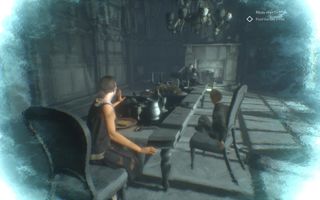
Lastly, there's investigation. Similar to Rocksteady's Batman games, you'll sometimes need to evaluate a room in order to figure out what you need to do next. Using your detective skills, you need to look around your surroundings and try to piece together what happened in the location prior to your arrival. This is done through a special "reconstruction mode", which allows you to use evidence in the location to visualize the events of the past in front of you.
All three of these gameplay "modes" are influenced by the skills of your character, which can be slowly upgraded over time. Each skill has strengths and weaknesses, and the numerous different character builds will definitely offer players plenty of replayability. For example, someone that invests in a high Strength stat will be excellent at intimidation, but might struggle with persuasion. A character with emphasis on Psychology will be great at deducing why someone did what they did, but may have a hard time figuring out what someone did in the first place due to a lower Investigation skill.
The sanity system

In Call of Cthulhu, things don't start to get frightening for a fairly long time, but when they do, Edward's sanity will start to deteriorate. From this point on, the gameplay shifts incredibly dynamically. Based on how stable (or unstable) your sanity is, dozens of things about your environment can change. A character with high sanity will be able to avoid trouble more easily, but if you fail to avoid too many scary moments, you'll start to hallucinate, hear sounds in your head, and even develop phobias. All of these bleed into the three types of gameplay I mentioned above, too; for example, some investigation scenarios can be based off of evidence that doesn't even exist. Sometimes, while exploring, you can be attacked by monsters that are nothing more than figments of Edward's imagination.
Even the slightest change in sanity will affect your gameplay.
This system reminds me a lot of the Amnesia series, and I love it. It creates a system where playing smart and cautious rewards you, while being reckless and carefree punishes you. The dynamic nature of the sanity mechanic also adds to Call of Cthulhu's replayability.
Performance and presentation: Acceptable, but not great

While everything else about Call of Cthulhu is fantastic, the game unfortunately falls short of greatness when it comes to both performance and presentation. Performance wise, the game usually runs at high framerates, but it isn't uncommon for the experience to dip down to the 20s and 30s for no apparent reason. These massive framerate drops are quite jarring to the gameplay experience, and can be fairly annoying after a while. In terms of presentation, the graphics are average, but they aren't anything special.
The biggest problem, though, is the quality of the animation. A lot of the time, the way a character's lips move don't match up with the words they're saying, and some movement animations can look stiff and odd. While none of this is detrimental to the experience overall, it does take away from my enjoyment of Call of Cthulhu.
Call of Cthulhu final thoughts
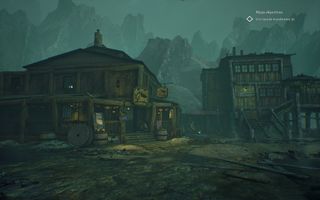
Though it loses points for its technical mishaps, Call of Cthulhu's story, gameplay, and atmosphere are all so incredibly good that it would be criminal to miss out on this thrilling, chilling adventure.

A nightmare you'll love
Call of Cthulhu's superb atmosphere, writing, and gameplay come together to create an excellent experience that is marred only by a handful of issues with polish and presentation.
Call of Cthulhu is available now on Xbox One for $60, and Steam for $45.
Brendan Lowry is a Windows Central writer and Oakland University graduate with a burning passion for video games, of which he's been an avid fan since childhood. He's been writing for Team WC since the summer of 2017, and you'll find him doing news, editorials, reviews, and general coverage on everything gaming, Xbox, and Windows PC. His favorite game of all time is probably NieR: Automata, though Elden Ring, Fallout: New Vegas, and Team Fortress 2 are in the running, too. When he's not writing or gaming, there's a good chance he's either watching an interesting new movie or TV show or actually going outside for once. Follow him on X (Twitter).
